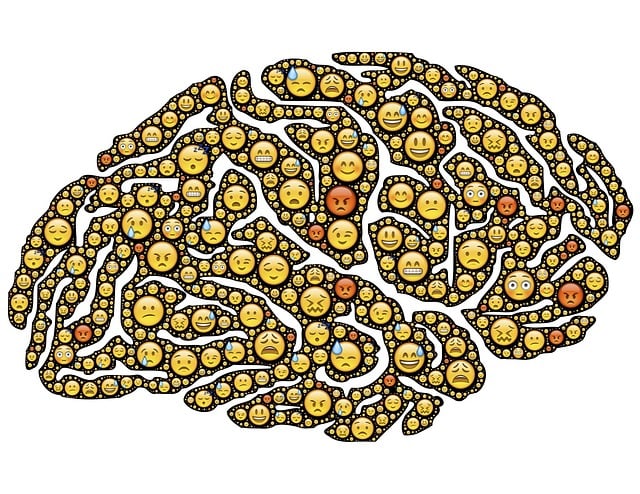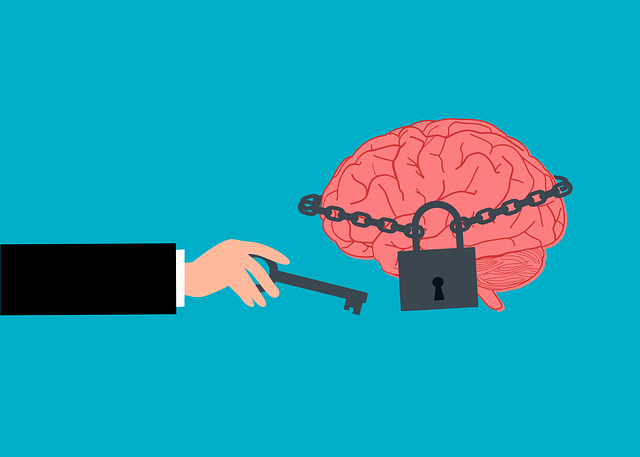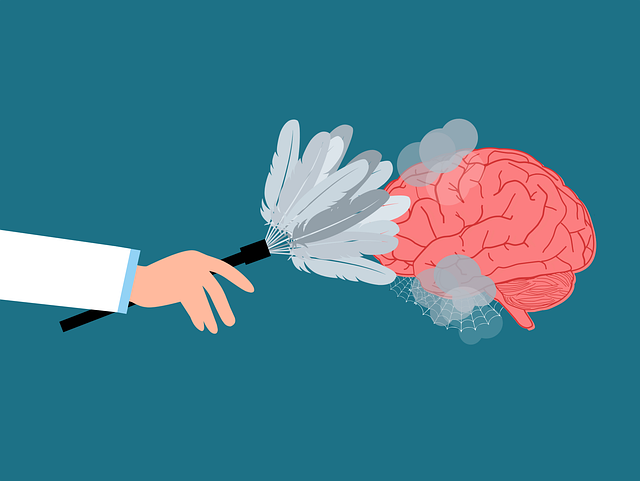Boulder Veterans Therapy offers specialized Crisis Intervention Team (CIT) training, focusing on de-escalation techniques, self-care routines, and empathy for veterans in distress. Their program integrates Mood Management and Mind Over Matter principles, building community resilience and promoting help-seeking behaviors. Key components include emotional healing, active listening, and burnout prevention, aiming to facilitate effective crisis response across diverse populations through Boulder Veterans Therapy's comprehensive approach.
“Crisis intervention teams (CITS) play a pivotal role in providing immediate, expert support during mental health crises. This article explores the significance of well-trained CITS and highlights the expertise of Boulder Veterans Therapy, a leading program making a tangible impact on communities.
We’ll delve into the essential components of effective training, including skills development, team building, and cultural sensitivity, ensuring CITS are prepared to handle diverse crisis scenarios. By examining these key aspects, we aim to emphasize why comprehensive training is crucial for organizations like Boulder Veterans Therapy in fostering healthier, more resilient communities.”
- Understanding Crisis Intervention Teams: A Vital Resource for Mental Health Support
- The Role of Boulder Veterans Therapy in Training and Community Impact
- Essential Components of Effective Crisis Intervention Team Training Programs
Understanding Crisis Intervention Teams: A Vital Resource for Mental Health Support

Crisis Intervention Teams (CITs) are a vital resource for providing immediate and effective mental health support, especially in high-risk situations. These specialized teams, often comprising trained professionals like nurses, counselors, and law enforcement officers, are designed to swiftly assess and de-escalate crises, ensuring the safety and well-being of individuals experiencing severe emotional distress or suicidal ideation. At Boulder Veterans Therapy, our CIT training programs empower individuals with the skills needed to recognize warning signs, respond effectively, and foster a culture of support within their communities.
By equipping citizens with confidence-boosting tools for self-care routine development, these programs contribute to improved mental wellness on a societal level. The ability to navigate crises appropriately not only benefits those in immediate need but also strengthens the overall resilience of communities, fostering an environment where individuals feel supported and empowered to seek help when facing mental health challenges.
The Role of Boulder Veterans Therapy in Training and Community Impact

Boulder Veterans Therapy plays a pivotal role in crisis intervention team training programs, offering specialized knowledge and expertise to equip individuals with the skills needed to support veterans in distress. Through their comprehensive curriculum, they teach not just technical responses but also foster an understanding of the unique challenges faced by veterans, promoting effective communication and empathetic engagement.
The therapy center’s approach emphasizes the integration of Mood Management techniques and Mind Over Matter Principles, enabling trainees to facilitate mental health improvement. Beyond training, Boulder Veterans Therapy extends its impact through extensive Community Outreach Program Implementation, ensuring that support systems are accessible and resilient within local communities. This holistic effort contributes significantly to enhancing crisis response capabilities while fostering a culture of care and understanding for veterans in need.
Essential Components of Effective Crisis Intervention Team Training Programs

Effective crisis intervention team training programs are multifaceted, aiming to equip participants with the skills and knowledge necessary to handle critical situations sensitively and efficiently. A robust program should incorporate several key components. First and foremost, it must focus on Resilience Building, teaching strategies that enable individuals to cope with high-pressure environments and avoid burnout. This involves instilling a sense of self-care practices and emotional resilience, crucial for maintaining composure during crises.
Additionally, these training programs should delve into Emotional Healing Processes, equipping teams with the tools to assess and address the emotional needs of those in distress. This includes techniques for active listening, empathy fostering, and de-escalation strategies tailored to diverse populations. By integrating these elements, crisis intervention team members can facilitate effective communication, build trust, and promote healing in individuals facing mental health challenges, as exemplified by the comprehensive approach at Boulder Veterans Therapy.
Crisis intervention team (CIT) training programs, such as those provided by organizations like Boulder Veterans Therapy, play a crucial role in equipping communities with essential mental health support. By focusing on evidence-based practices and fostering collaboration among various stakeholders, these programs empower individuals to effectively respond during crises. In light of the growing importance of mental health awareness, continued investment in CIT training is vital to ensuring that we have a network of skilled responders ready to make a positive impact in times of need.














